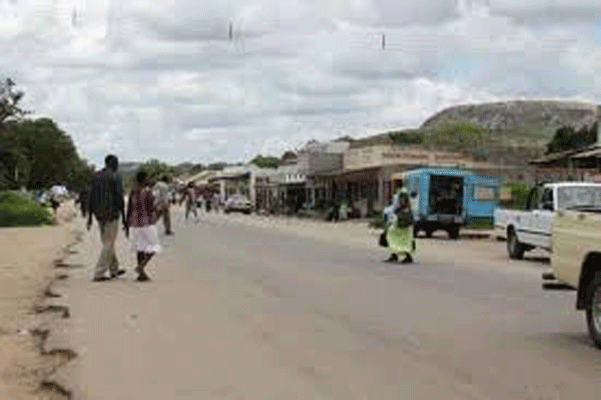
THE beauty about Murewa Centre, just like such other rural service hubs, is that it is a combination of urban and rural elements.
BY TAPIWA ZIVIRA
Here, one can see ox-drawn carts sharing the road with top-of-the-range vehicles, while big upmarket shops stand next to general dealer outlets.
The centre is situated strategically close to where two major roads meet — one that leads to Nyamapanda Border Post and the other, which leads to Uzumba Maramba Pfungwe.
Murewa is one of the preferred residential places for those running away from Harare’s stands scandals and over the past years, there has been a notable growth of Murewa residential areas.
In response to this growth, the centre has, in the past few years, received a remarkable facelift, with the roads in the main business centre getting fresh paving, new road signs and drainage canals, while solar-powered tower lights have been erected on the road that leads into the main centre.
The centre, which is currently run by Murewa Rural District Council and is officially a rural service hub, seeks to gain town status.
- Chamisa under fire over US$120K donation
- Mavhunga puts DeMbare into Chibuku quarterfinals
- Pension funds bet on Cabora Bassa oilfields
- Councils defy govt fire tender directive
Keep Reading
As a town, it will run independently from the rural district council in the management of its affairs.
But to become a town, Murewa will first need to improve its capacity on, among other things, the handling of its sanitation services delivery.
With the Zimbabwean economy heading south, this feat seems unachievable from the little coffers the rural district council handles and has to distribute across the urban and rural areas of the vast district.
All, however, is not lost as the Catholic Agency for Overseas Development (Cafod), part-funded by the European Union, and in partnership with Caritas and Murewa Rural District Council, has been engaged in various projects aimed at improving the sanitation situation in Murewa.
The project, named Sanitation for Success, has been running for the past three years in Murewa and Nyanga, with the aim to “sustainably improve the living conditions, health, human dignity, economic productivity and the environment . . . through an integrated approach to sanitation”.
The project has enhanced Murewa’s capacity to manage its waste, with the donation of street bins and the donation of a refuse collection truck, among many other sanitation initiatives.
But perhaps, the most unique part of the entire project is its involvement of the entire community — from villagers to schoolchildren and craft makers — in raising consciousness on the need for sustainable homemade solutions to improving sanitation and maintenance of the environment.
This broad involvement came out at the Sanitation Festival Cafod and its partners hosted at Murehwa Centre last week, where community members, school pupils, business, non-governmental organisations and government officials all converged for one cause — sanitation.
A colourful two-day event, the fete started with a Junior Sanitation Summit, where children from various schools –in their groups — had a chance to showcase innovative ideas of improving sanitation and maintaining the environment.
Pupils explained and displayed their ideas on safe diaper disposal, and use of various waste materials like beverage cans and plastics to make ornaments and clothing items, among others.
The summit wrapped up with a panel discussion led by students from high schools in Murewa on how the youths could contribute towards sanitation improvement using social media.
After the Junior Sanitation Summit, more was to come as panellists and delegates drawn from private sector, donors, local and regional municipalities and resident association representatives deliberated on what Zimbabwe needs to do to put in place a sustainable sanitation service delivery structure, with a view to ensuring universal access, preventing slippage and leaving no one behind.
The summit ended with a mega event held at Murehwa Showgrounds, where Health and Child Care minister David Parirenyatwa addressed hundreds of villagers, students and other officials, and encouraged the Murewa community to adopt community-based sanitation methods.
He said he believed that Murewa was ahead of many urban areas in the country and could be an example of the best practices, which other towns could emulate on issues of sanitation.
Dozens of crafts makers exhibited various items made from refuse, while some companies displayed in solidarity and support of the sanitation project.
As the festival ended and Murewa residents either continued to enjoy the various arts performances or walked back home, a celebratory mood hung in the air, and it appeared there was, for the first time, some hope that Murewa would be a town — and perhaps one of the cleanest in the country.












